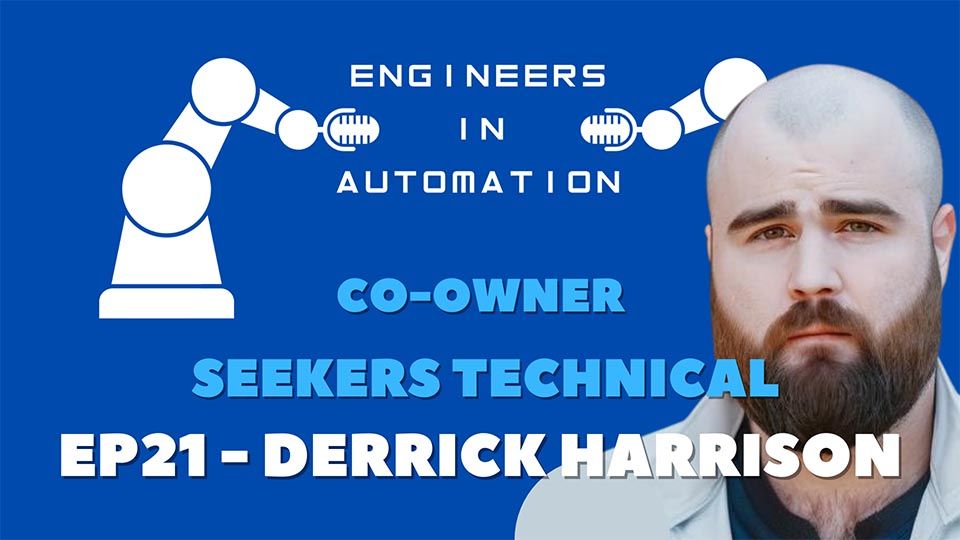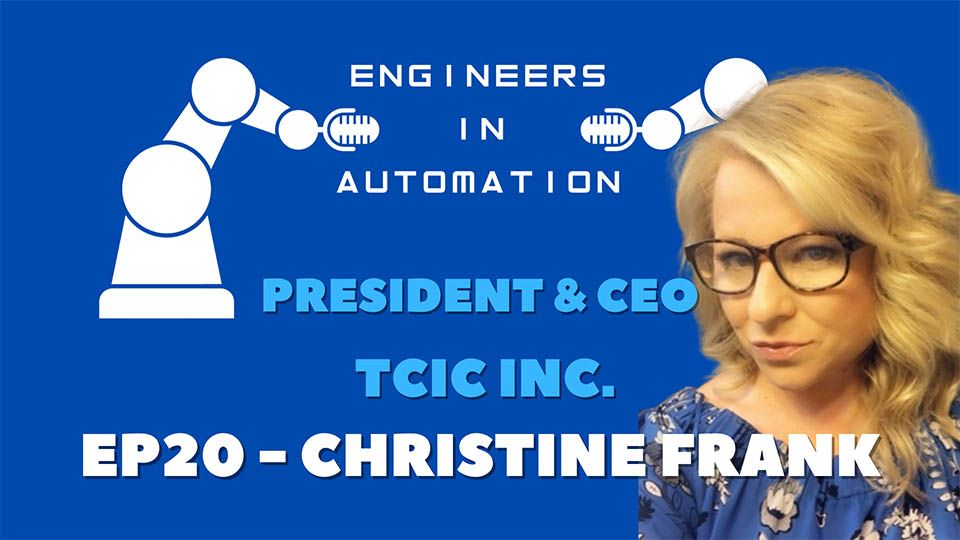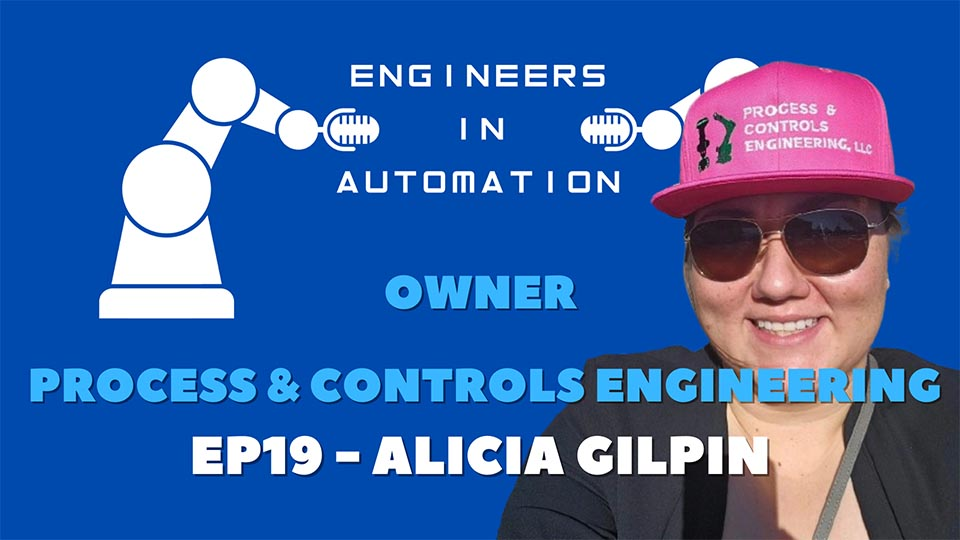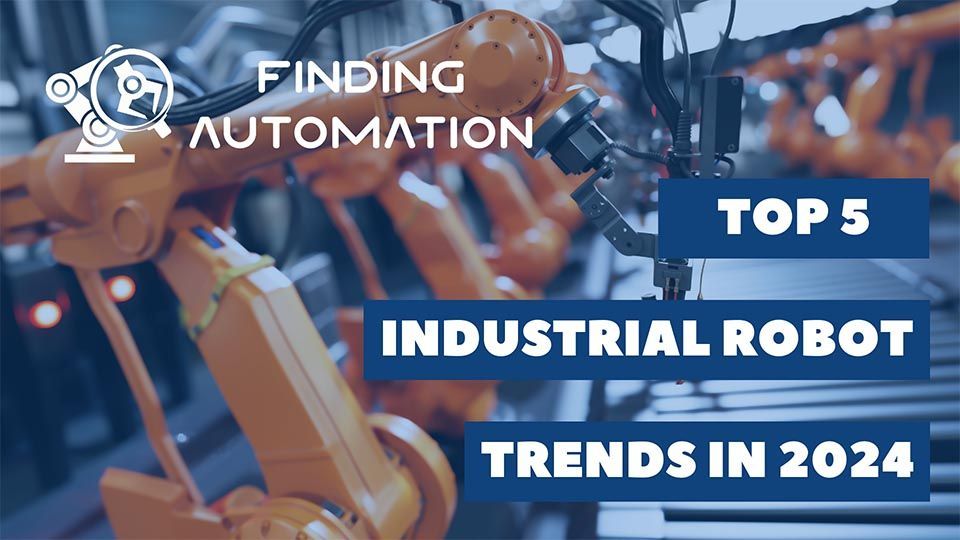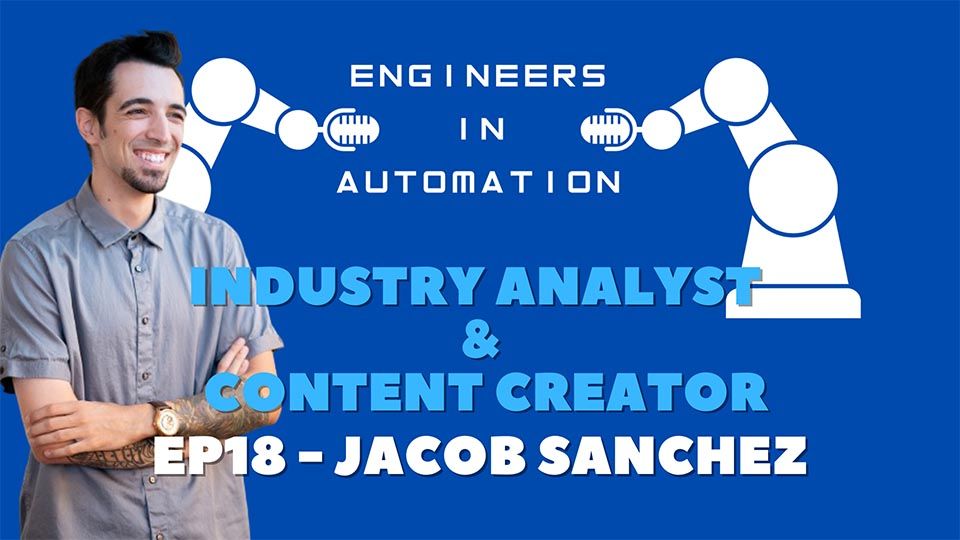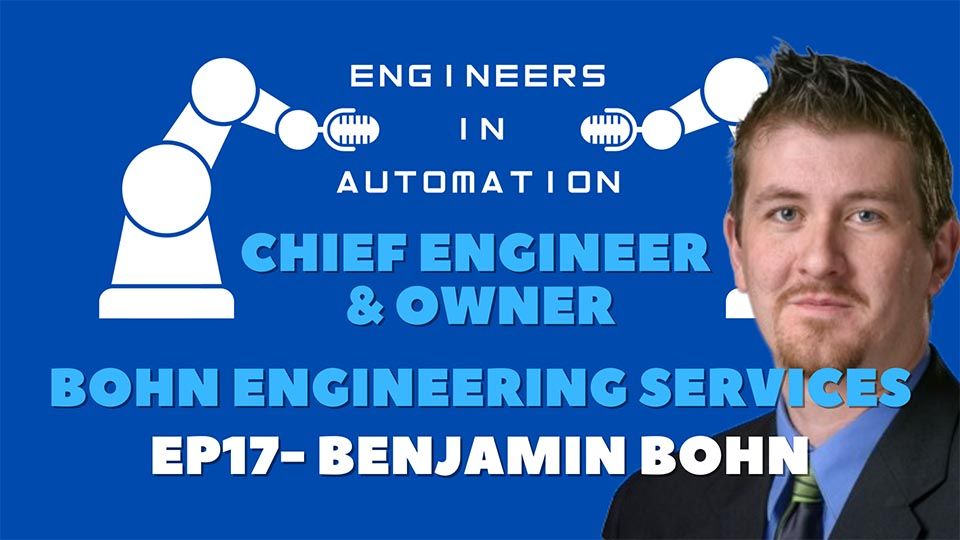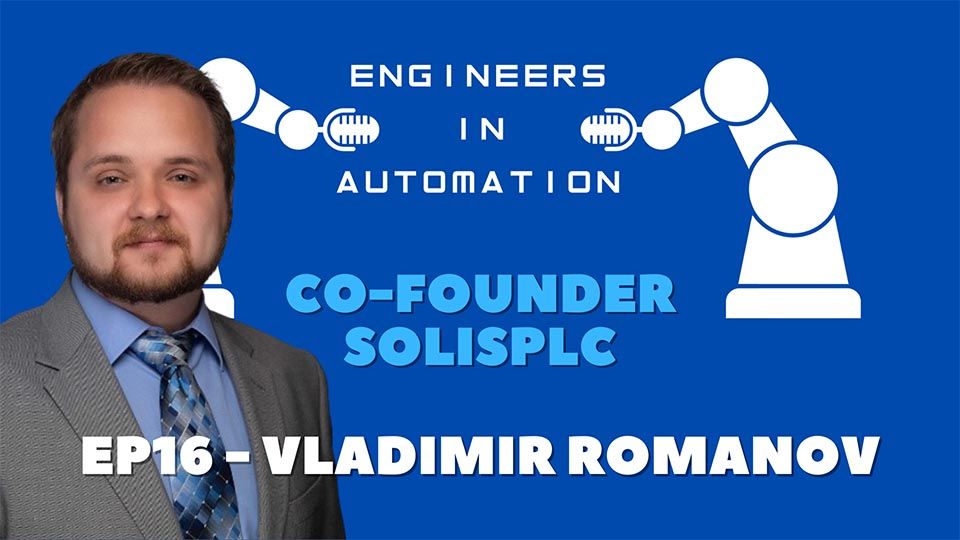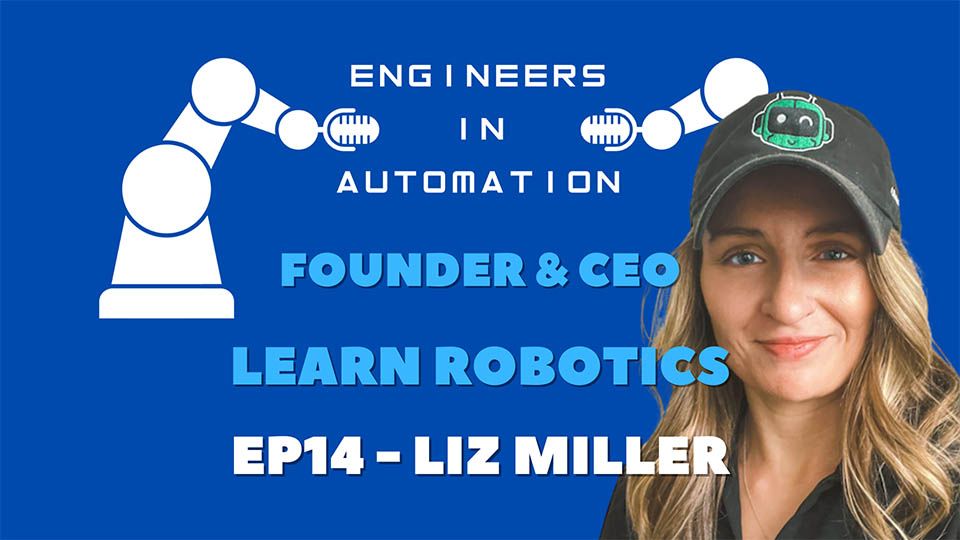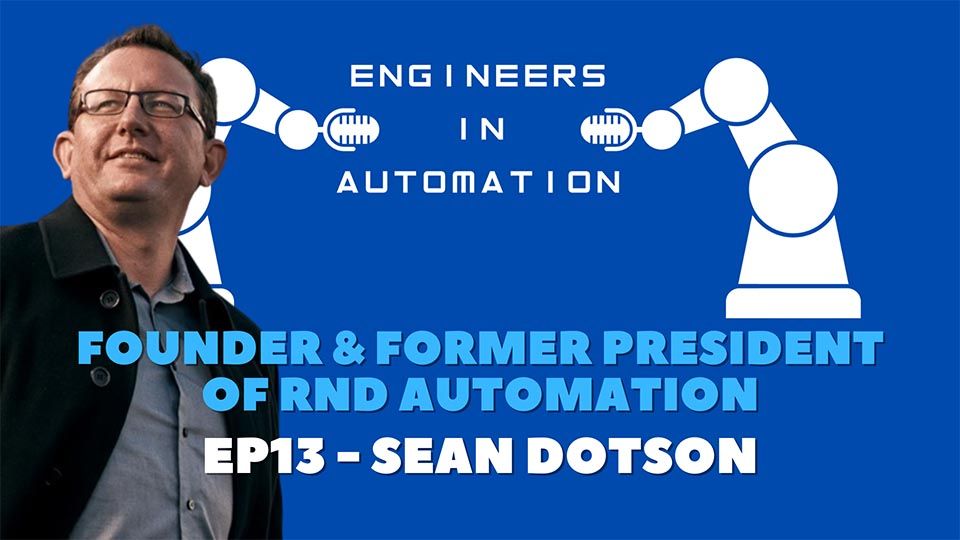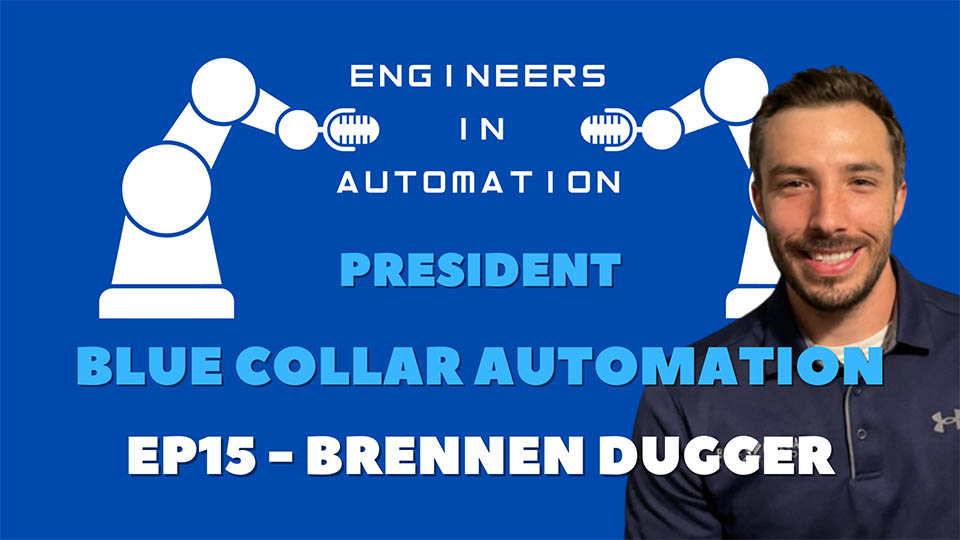Sonny Singh | Singh Automation
Engineers in Automation - Sonny Singh | Episode 11
In this episode, we talk to Sonny Singh, the Managing Partner at Singh Automation. We discuss the history of Singh Automation, why they chose to build the business in West Michigan, and how they can now find local engineering talent from the university. We also dive into the need to upscale your workforce and what it’s like working in the automation industry.
WATCH THIS ENGINEERS IN AUTOMATION EPISODE
Keegan Dillon – Host (KD): Hi, my name is Keegan, and I'm your host of Engineers in Automation. On today's episode, we're going to be talking with Sonny Singh. He's the managing partner of Singh Automation, a systems integration company based out of Southwest Michigan. We're going to talk a little bit about working with his co-owners. We're going to talk about growing the business. And then we're also going to talk about the advice you would give for someone looking to work for an integration company. Now let's go talk automation!
KD: All right, and welcome to today's episode, I'm here with Sonny Singh. He's the managing partner of Singh Automation. Sonny, welcome to the show.
Sonny Singh – Guest (SS): Thank you, Keegan, for inviting me and joining you in the conversation.
Sony Singh’s Background In Automation
KD: Yeah, no problem. And let's just go ahead and jump right into it here. How'd you get started? And what's your background in automation?
SS: So, it was less of automation. My side was more of technology. And, and I found the right partners to pursue in that technology venture. And then an opportunity came to join Gurdeep and Jas they are the founders of single automation. And opportunity came along to join them in their venture. And I took that opportunity. And here we are.
KD: Oh, wow. Yeah, cool. Well, and I noticed too, it looks like you're also a self-employed entrepreneur, and have many other ventures as well. Do you want to briefly touch on those?
SS: I'm gonna say yeah, I mean, I don't think that's a surprise to you. I've seen your profile. And, and that's just an our, I guess. People who are drive to do things, and they're just always, always trying to less of a money, they're more of the rush that we get doing certain things. And, like, I do host a radio show, too. Yeah, so I do about an hour, hour and a half every week. And in and then we are do robots all day. And few other things. You know, its things keep taking exciting. And, and, yeah. And it builds your network.
Singh Automation
KD: Yep, yeah. So yeah. And I was gonna say a lot of self-motivated people, we all seem to be driven. And you start to see that many of the people that I've interviewed, well, I guess one of the starting points here is when did you guys start Singh Automation?
SS: So Jas and Gurdeep, this started back in 2014. And I joined them recently, actually 2021. So, I knew him for a while. But you know, I know what I'm for quite a bit, but a few years back, but as for the Singh Automation, I joined them recently, but there was another technology venture like an app that we're pursued and develop. And that was back in 2019, I believe 2018 or 2019, we, you know, we did that. And so that's where we got to know each other. And we seen that we are up for challenges. Yeah, they're tough sometimes. But that's the part of the game.
So, so that's, that's pretty much it. They started in 2014. There started with three people and their team grew. And 2020 as most manufacturing and so on companies, they got hit. And Singh Automation was no different. So, they, they came with challenges where the team shrunk. And so since 2020, I would say as their backfired up again, and we went from three, three or four individual team members, and now we're up to almost 40.
Singh Automation Organization Structure
KD: Wow, that's great. Oh, and how's the dynamic working with so many, you know, owners, founders, co-owners, managing partners, how's that dynamic work with a group?
SS: So there's a we, we have pretty, it's all systematic. So it's like there's systematically everybody is put in their roles and responsibilities and So we have like most companies do as like our structure, and their org structure, we truly believe in that. And everybody has their roles and duties and responsibilities. And they fulfill those responsibilities, and they get checked upon on those responsibilities. And they held accountable for whatever they are doing. And yeah, so it's a works out and there's and it's pretty open organization. So we're, we're not shy away to question the CEO of the company, what they have been up to, are they doing their job? And down to anybody who's, you know, maybe an intern? So everybody is, is open for cushioning anytime?
Singh Automation Facility Size
KD: Yeah, that's a good good business dynamic. And wanted to ask how big is the shop now that you guys are at?
SS: So the shop itself, we're been shopping for bigger location. And, meanwhile, we are at current shop, where it was not fully used before. Now we are using it more facility, most of it. And the things that was used as a storage that has been cleared out. So it's, we just tried to play Ouija board, per se. With our current shop, and we're making it work. But all the partners they're aware, and they're actively looking for bigger location or bigger facility where we can, because there's a bigger projects, the current future, there's a and then they'll feature we're further down. There's bigger projects, they're in works. So for that we definitely need some bigger facility to accommodate all that.
KD: Especially if you've grown from to you know, you're almost at 40 employees now, you’re definitely going to need shop space.
SS: Yes, and we still have like three openings as well.
Singh Automation In Kalamazoo Michigan
KD: Yeah, so you guys have definitely been growing in the last few years. That's, great. Why are you guys over in the Portage, Kalamazoo Area. And that's for the west side of the state of Michigan. For those of you who aren't in this area. What made you guys choose that area to do your manufacturing there?
SS: So, Jas and Gurdeep, they both went to Western. So, once you go to college, you build the ecosystem there. And the community and everything around you. And so our mindset while we are over at work is, we try to give back to the community. So where you know, where those where we are getting our income or our living from, and we building a business, then we tend to give back to that community. So this is one way to do that is stay in the area and stay, you know, give more opportunity to local, young, upcoming young brains, I would say, to give them that opportunity to pursue automation, because this is the future.
Finding Automation Talent
KD: Yep. And that's a great point. And you also touched on something that I wanted to ask is, where are you guys? You know, you've grown so fast. Where are you guys finding all of this talent? Are you doing University outreach? Are you doing job boards? Recruiters, are you looking for recruiters? How are you bringing in all this new talent there?
SS: So our talent is mostly what we have from the network of our current employees, where are our current members there, they have their network in a similar field. So we get some luck there. And some is social media and traditional, you know, nowadays, the traditional way to you know, we don't put it in newspapers anymore. So it's, it's a social media or, or the current. There's a state program that helps to, to individuals for internship, so we're definitely taking advantage of that as well. And then Western. Western is a pretty good hub to find talent of different with a different skill.
Singh Automation Projects
KD: Yeah, great. And then I'm really wanting to kind of go back to what you mentioned earlier. A little bit about your projects and growing projects. How many projects are you guys working on right now? Can you speak to that?
SS: Ah, if I say the projects we have on the boards are 10. And we're kicking off two more next week, I believe. So we're most likely we're wrapping up two to three projects next week. But we are kicking off at least three next week again. So it's, it's a, it's a revolving project board. We have we use, we have our own control plan. And that board is basically is the one that's get updated. So as we held meetings every morning, and we kind of quick over glance everything, just to review every project and where they stand. So, yeah, so we have at least 10 on the board right now.
KD: Wow. That's, that's great. And then, you know, with that, how are you guys finding and reaching out to new clients? Again, through social media, I would assume? How are these clients finding you guys?
SS: So yes, so social media is one. And our also CEO, Gurdeep. He's basically a salesperson as well. So he, he's out there, and talking to people and so on, then we have Charlie Rupert, he's and other co-CEOs, and, and basically a managing partner. So, combination of all three of actually four or five people. We're all out there using social media. And then we have our current clientele. They’re just ordering a second or third, or fourth project. So that's, that's another thing is because companies are expanding, even though it may or may not look like an economy, the news, or whatever. But company companies are still expanding. Companies are still onshoring. That's the new word now, ohshore. So the way they're able to do onshore is they're using automation.
Automation Hesitancy
KD: Yep. Yeah. And that is that's a great point. And I talked with somebody about this a couple interviews ago that we had is a lot of the onshore and bringing all the jobs back. Automation is still booming, even though you like you said, you look on the news. And right now people are getting laid off and all these different places. However, in the automation industry, it's not really happening. Which is good for us. But you know, bad for some other people. I guess it's.
SS: Yeah, yeah. So it's so. So it's what I see is, when they when there's a change, when there's a change in anything, you know, things do change, and then people adapt. You know, change comes people adapt. So, you know, there as a Detroit, there have been few changes, you know, even though Lansing is our capital. But if you ask anybody in the world, what's the capital of Michigan? They'll say Detroit.
KD: Yeah. Right. Right.
SS: So, so, Detroit has changed from automation, I mean, automotive to what it is now. And, you know, it's becoming, there's more technology coming and so on. But yeah, so if there's a change and what I see is some, some think automation going to take jobs away. That is such a false narrative that what I in my opinion, that is not going to happen, that's not happening. So what's happening is where operator are more safer now, doing the same job, what they were doing before. For instance, it was operator is working with a glass, heavy glass 120-pound glass. And where they were two or three operators, they were lifting that glass they were putting on to this kind of where and if the glass breaks, they have protected gearing but they still get hurt, somehow. And then there's a there's other factors that come in to for injuries and long-term injuries, arthritis, so on. So now all that operator is doing is making sure the rubber robot is running. It has the material, it just the operator just watching that same robot. Now they're all operator just pressing burns, few buttons, start, stop, you know, go home, you know, few things. And, you know, it just upkeeping the robot. So, yes, the roll is gonna change at a job, but the human factor still gonna be there. If we say it's gonna be all robots, no humans. I don't see that in near future.
KD: I think we’ll be long gone by then.
SS: Yes, yes. True.
KD: And there'll be other there'll be other problems and other jobs that take over those roles.
SS: Yes. But so yeah. So there's a narrative that goes in, especially when there's automation in introduced to, like, a facility that never had automation? Yeah. So that's the narrative sometimes that goes in and says that it's the, you know, oh, here's a robot is going to take a job away? No, it's gonna make a job safer.
Upskilling Your Automation Workforce
KD: It's also about upskilling, your current workforce, right? It's taking an operator and teaching them to become a robotics technician, or, you know, taking a person instead of having three people to move this glass, like you were just saying, and moving somebody else to a new role and upskilling them within, in your current company.
SS: And better pay, right? So you're, you're now you have a skill set. Now, you're more versatile, you can use that skill set in different companies, because they all gonna have the automation so it doesn't matter. You go in auto industry, are you going in a glass industry, our industry, maybe even a food industry? So all these they all change. And, but your job description still gonna be a robot, sorry, robot operator. So, so, so yeah, so I, personally I am, you know, there's little touchy point to me is like when somebody says, robots gonna take the jobs away, like no, they’re not.
The Forecast For Singh Automation
KD: Just just shuffle some things around. And I guess one of the other questions I wanted to ask you to what, what are some of the future goals for seeing automation?
SS: So we're, we're yes we do. Manufacturing pick and place then we are there's in our values are somewhere where goal or a tagline you want to say is innovative? Yeah. So we're, we're innovative. So we're building. We have few projects coming there. We're building basically robot systems. That's all I can go into your robot systems, that that will be helping industry in, you know, in trucking and so on. So there's, there's another next level of Singh Automation is coming up. But where we're still integrators there we are integrating systems for companies that never been introduced to automation. So seems like seems like that's that that is our right now is a key is we're introducing systems where they're never been robots.
Singh Automation Client Focus Area
KD: And are you focused on just clients in the you know, Southwest Michigan area. Are you all over the states?
SS: So actually, we have an office in California now. And, and one in India.
KD: Okay.
SS: So, so we're, we're we got actually next project is in California. That's getting introduced next week. So, so we're not limited to Michigan. Yes. We get a lot of our projects. I will say right now is Indiana, Michigan. area. So RV industry we do a lot for RV industry. So, we're, you know, doing that and, and in Michigan, but yeah, we're not limited to, it's one of those things that the way that our system is we validate the system, then it doesn't matter where it gets installed. It could be anywhere in US. So we installed a project in Missouri. And we have other projects, we have a project in New Jersey. So, we go far.
Automation Advice
KD: You’re definitely branching out, then I guess what advice would you have for someone who's thinking about working for an integration company like Singh Automation?
SS: So there's my first advice would be is definitely go learn automation, in a sense that you are not just playing with robots. So my first is, we, we make our expectation that are gonna go in automation company. And the first thing we're gonna do is, is going to just program a robot programming robot actually comes last.
KD: Yeah, you are right!
SS: Programming a robot comes last, the first thing comes is controls. wiring the robot, CAD design, EOAT. So, you have you know, you have the you have CAD, mechanical, manufacturing, assembling controls, wiring, wiring panels, programming PLCs. So if you're planning to come to automation industry, there are 100 different ways you can enter. There, there's, you know, I'm just throwing 100, but let's say 20. Let's, you know, there's 20 different ways you can enter. So PLC programming, wiring, electrical panels, design, CAD, you know, so there's, there's quite a few ways you can enter, so there's gonna get intimidated dated by you know, that it's a robot. I don't know, like, you know, you see those sci-fi only like movies. Like, you know, this big brains only can do robots, you know, you know, you can get intimidated by him. No, robots are created by human. This programmed by human. Actually, what I use is robots are pretty dumb.
KD: You have to make them smart, right?
SS: Yes. Is the human behind that robot make it look smart? Yeah. So So, so my advice to anybody out there went want to get into automation, jump in, go, go these branded robot companies, they provide trainings, they hold seminars, go on YouTube, watch videos, learn, go to colleges, they have, they're these trade schools, they have specific just programming a robot, PLC programming, wiring, they have electrical controls. So they have all those CAD. So, they have these are the like the main ingredients, that you know, you can just go in and you can get skill set in this and you will be now automation. The rest you will learn on the job, there will be the experience that you will get on a job that cannot be replaced by any trade school out there. I am sorry to say but that that is cannot be replaced. So find, find out automation company do our internship. You know, so that's where as you do a summer internship and learn how to manage projects. That's another part of it project managing.
KD: I was just going to mention that earlier. That's another step there that's people don't even think about. You don't even have to technically touch the robot or design anything. You could literally just manage the program.
SS: Yeah. So there are there are quite a few different ways you can get into automation. So the first thing is you got to take the fear out that it is out of your reach. You got to take their fear out. It is not you have more technology on your iPhone or your on your there's some of these teach pendants for these robots. So so and yeah, in the programming that, you know, I personally have been in touch or teach pendant before I started Singh Automation. Now I'm able to do basically basic programming meaning and touchpoints. My roles responsibility is one over years installation. So we're during installation testing. So they're testing, I have to tweak the points make it cycle time is a big word. So we have to bring the cycle time. So to do that, you know, we have to do some tweaking and so on. So yeah, so that's, and I learned that here. I have not, I did not have any skill set in that. So so I will said, don't get intimidated. Just dive in!
Connect With Sonny Singh
KD: Find your niche that you like, and try that. And yeah, and with that, Sonny, let me ask. Where can people find you? How can they get a hold of you? How can they connect with you?
SS: SinghAutomation.com that's one. And you can go on that, you can call us, email us at info at or actually, you can email me Sonny@SinghAutomation.com. Or just stop by. Google Singh Automation stop by say, “Hey!” You wanna you want to just kind of visit and look at the robots and have a feel for it? Call us and we can schedule a time and walk you through our facility. And we do in fact, we do a program in California for the kids. Where are we taking a robot to middle schoolers. And we're just going to show them how the robots work. And we have we have the classes, free classes at our facility here for supervisors and accompany supervisors and for the kids. So we have done that. So just stop by where, you know. My, my son always says, He's like, he's seven. He's like, now it's seven. But he says, Dad, when you're going to build the rest of the robot, you only got arm.
KD: That's great. Well, I'm gonna have to take you up on that offer. Next time I go see my parents. I grew up on that side of the state, you guys are only a half hour away.
SS: Definitely, definitely stop in. Call me, text me. Call me text me and we'll definitely make time.
KD: Yeah, I'll have to do that Sonny. Well, I appreciate you talking with us today. And if you enjoyed today's episode, please give us a like, comment and share and don't forget to subscribe. And we hope you join us here next time on Engineers in Automation. Thanks!
SS: Thank you Keegan again.
If you enjoyed that podcast episode, get more information below!
CONTACT OUR GUEST:
Connect with Sonny Singh on LinkedIn.
Go to https://singhautomation.com/ to learn more.
SPECIAL THANKS TO OUR SPONSOR:
JOINER Services sponsored this episode. A platform where self-employed engineering contractors can showcase their own talents, and businesses have an opportunity to hire their services. If you want to learn more about JOINER Services and its engineering service platform for contract engineers, follow them on social media or sign-up on their website.
